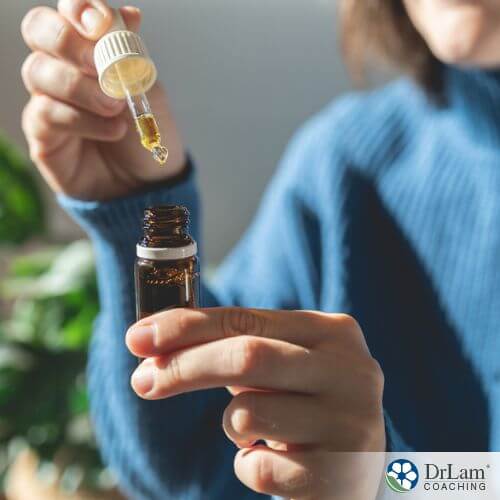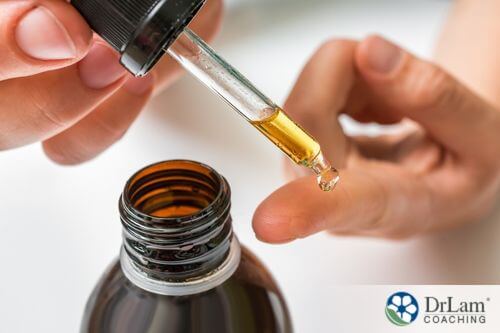There is a lot of hype about ozonated oils and their benefits. But what do we mean when talking about ozonated oils, and do they indeed have benefits?
Simply put, we make ozonated oils by adding ozone to them. And studies show that, while airborne ozone is dangerous to breathe directly in, ozone in oils appear to be safe and beneficial for several health concerns.
 Ozone, or O3, exists as a gas high in the earth’s atmosphere, where it has an important protective function. It forms a shield that absorbs most of the sun’s harmful ultraviolet rays, preventing them from reaching the earth.
Ozone, or O3, exists as a gas high in the earth’s atmosphere, where it has an important protective function. It forms a shield that absorbs most of the sun’s harmful ultraviolet rays, preventing them from reaching the earth.
To living creatures, however, breathing ozone could cause serious health implications. While ozone has beneficial oxidizing properties and makes an excellent disinfectant, breathing in elevated levels of ozone for even a few minutes could cause breathing issues, chest pain, coughing, and eye, throat, and nose irritations. Those with asthma may see their symptoms worsen. Essentially, ozone in gas form damages your lungs and airways because lung cells don't have the enzyme to reduce the reactiveness of ozone gas.
Ozone is highly reactive, and at ground level, it reacts with other chemicals in the environment to form smog. Even breathing in ozone from a machine at ground level could be dangerous and is not recommended for people or animals. However, your body can contact ozone in your sinuses, ears, vagina, rectum, bladder, gut, skin, and through the blood with no problems as the rest of your cells have the enzyme to break down ozone effectively. It's actually a very benign gas in all other areas except the lungs.
But what about the use of pure ozone in a controlled environment? And what about its use in oils? Do they cause similar reactions? According to the literature, the answer is a definite no. Ozone may have health benefits still yet undiscovered.
Research into the medical benefits of ozone began in the 1950s. Some literature shows that, during the First World War, medical professionals used ozone to address gangrene in soldiers. Since then, research has concurred with this use and shown it to be effective for the following:
In all instances, special protocols are needed for the safe use of ozone therapy.
Breathing large concentrations of pure ozone could have repercussions, as mentioned. Literature, however, suggests that when adding ozone to oils, i.e., making ozonated oils, you have a totally different scenario. Ozonated oils may allow us to experience the benefits of ozone without the risks involved in traditional ozone exposure.
When making ozonated oils, you add ozone to oil for a long period of time. You can do so with any oil suitable for human consumption, like sunflower oil, coconut oil, or avocado oil. We often refer to these oils as ozonated oils.
 While still a relatively new addition to the commercial marketplace, ozone has been used in the healthcare field for some time.
While still a relatively new addition to the commercial marketplace, ozone has been used in the healthcare field for some time.
Literature suggests that when applying ozone to the skin, it exhibits profound antimicrobial properties and may kill off a large variety of foreign pathogens. These include, amongst others, viruses, protozoa, fungi, bacteria, and parasites.
It may also promote wound healing because of its ability to activate fibroblasts and keratinocytes in your cells. Fibroblasts help with connective tissue formation and secrete collagen proteins that help to maintain tissue structure. Keratinocytes are found in your skin and play a role in skin repair.
Ozonated oils may allow you to reap these benefits in a safe way.
According to research, ozonated oil may prove more effective in addressing parasites than some conventional medications without the side effects common to many of these drugs. It may also improve inflammation of the joints and muscles because, once in the body, it comes into contact with the cells responsible for tissue regeneration while boosting your antioxidant system.
One way ozonated oils may help the body is by helping it to address some of the negative effects of inflammation. Your body sees the invasion of any foreign pathogens as a form of stress. Many of these pathogens can cause inflammation, which is a response to stress. Whenever your body encounters a stressor, the Hypothalamic-Pituitary-Adrenal (HPA) axis in the brain sends chemical messengers to various parts of your body that initiate your NeuroEndoMetabolic (NEM) Stress Response. Your Inflammation Circuit is one of the sets of related organ systems forming part of the NEM.
While usually of short duration, a constant stress response could result in chronic inflammation. Chronic inflammation reveals itself in many forms. The most common of these include inflammatory skin conditions, rheumatoid arthritis, asthma, Parkinson’s disease, Alzheimer’s disease, diabetes type-2, obesity, cancer, and inflammatory bowel disease (IBS).
The most common inflammatory skin condition is dermatitis. Some types of chronic skin inflammation may be inherited. Others may result from allergens or extreme temperatures. Psychological stress can also cause inflammatory skin issues.
In theory, the process of making ozonated oils is simple. You need two ingredients: the oil, like olive oil or coconut oil, for example, and ozone. You would then bubble ozone into the oil. But there is more to the process than that.
To make ozonated oils safely in bulk, you would need specialized equipment that includes an oxygen source and an ozone generator.
Please remember that prolonged exposure to ozone gas could cause health issues. So, if you should decide to make ozonated oils, you should always be in a well-ventilated area.
The process for making different ozonated oils at home is similar.
If using coconut oil, put the oil in a jar in a warm water bath to prevent it from solidifying. Attach a small tube to your ozone machine and put the other end into your oil. Ozonate the oil using four, thirty-minute ozonator cycles. Keep your oil in the refrigerator once complete. Once opened, the oil’s effectiveness lasts for approximately twelve months. After this, throw it away and purchase or make new ozonated oil.
Because coconut solidifies when ozonated or refrigerated, it makes a good salve. Other oils will stay in their liquid form.
Ozonated oils have many health benefits when taken internally. These include the following:
Ozonated oils can help improve skin health and promote healing for a variety of skin issues. Skin conditions that could benefit from the use of these oils include:

Ozonated oils may also prove an effective treatment for sun damage as they may provide immediate pain relief while reducing redness. These oils may also promote quicker skin regrowth and faster healing.
Also, ozonated oils increase the oxygen supply to the skin and stimulate blood circulation. This may slow down the aging process and promote firmer, tighter-looking skin.
If considering ozonated oils for ingestion or to apply on the skin, do take into account that these oils may not be suitable for everyone.
Some people may experience an adverse reaction when applying ozonated oils directly to the skin. So, first, do a small patch test before applying it to the face or a large area of skin. Some people may experience a slight burning sensation when applying ozonated oils to their skin. The sensation usually dissipates very quickly. If the sensation persists or you notice an adverse reaction after application, wash the area with soap and water immediately. Also, you can add dilute some of these oils by adding them to your regular skin lotion or using them directly on your skin.
If you have a reaction to a certain oil, the ozonated version will likely have a similar effect, so avoid any oils you are allergic or sensitive to.
Also, remember that breathing in ozone gas is dangerous for people and pets, so be careful with its use in your home.
We recommend that you talk to your healthcare practitioner before using ozonated or any other oils topically or internally. They are best able to determine its effectiveness by taking your medical history into account.
Ozonated oils are an easier, more cost-efficient method of gaining the many health benefits of ozone. While the gas may harm you when inhaled in sufficient quantities, adding it to oil can offer many benefits. When used topically, it can reduce the signs of aging and help address many skin conditions for which one would typically use corticoids or similar medications that have side effects.
If you would like to know more or have questions about ozonated oils, the team at Dr. Lam Coaching can help. We offer a free** no-obligation phone consultation at +1 (626) 571-1234 where we will privately discuss your concerns and various options. You can also send us a question through our Ask The Doctor system by clicking here.
Inflammation is one of the issues associated with adrenal fatigue. While ozonated oils may not directly provide adrenal support, they may help your body deal with one of the contributing factors associated with the condition, such as a skin condition that is a contributing stressor.
